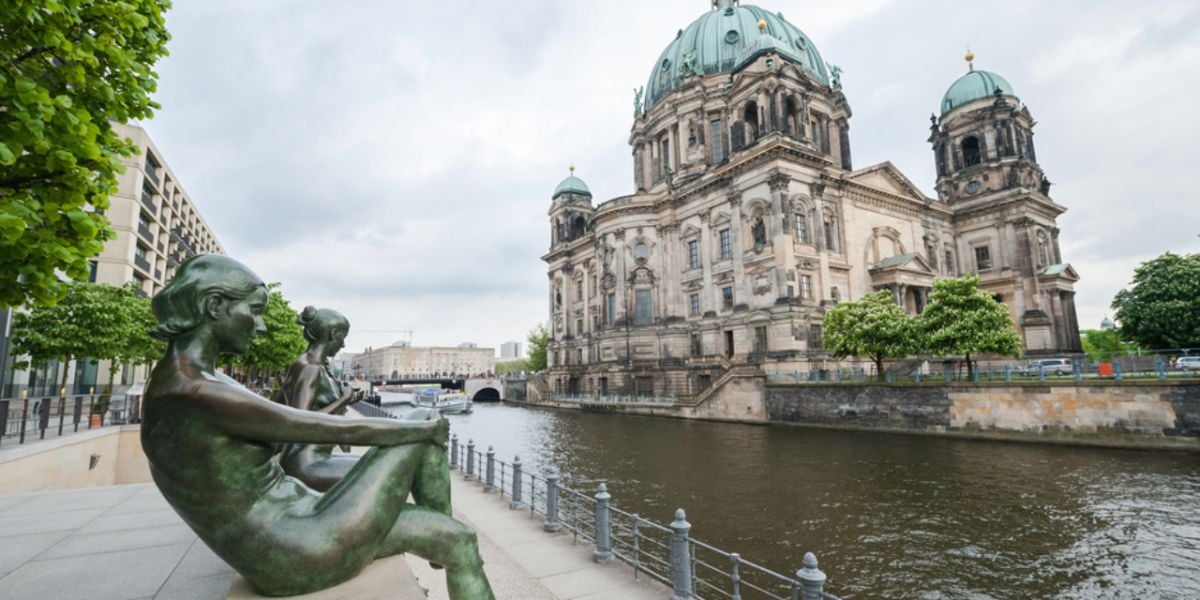
Berlin is a lively capital city with a range of cultural diversity and professional and networking opportunities. Whether you arrive in Berlin alone or with family, you will be able to enjoy a high standard of living, quality time, as well as favorable circumstances for career progression and lifelong learning.
Yet, before you indulge in the unlimited possibilities that Berlin has to offer, it is essential to allow yourself time to adjust to Berlin's culture and the German lifestyle and to incorporate your values and habits into everyday life in Berlin. Simply said, Germans deeply appreciate the structure and patterns that social etiquette supports. Although they often keep to themselves, they will feel comfortable correcting you if you do something against what they deem correct, such as crossing the street at a red light or being late for an appointment.
Formality is a sign of respect in Berlin
Formality is an indispensable part of everyday life for many in Berlin, meaning that politeness and verbal and non-verbal communication cues can help you develop better connections with Berliners. For example, keep in mind that when greeting someone whom you don't know that well or meeting for the first time, you should invest in a firm handshake while making eye contact rather than a kiss on both cheeks, as is the norm for French people. Even if you are being introduced to multiple people at the same time, you are expected to go around and shake hands with everyone.
Of course, due to COVID-19, greeting styles around the world have been adapted to reduce the risk of contracting the virus. During the pandemic, the interior minister of Germany refused to shake Chancellor Angela Merkel's hand, and overall, the business world sees fewer handshakes than before. Sometimes, a wide and honest smile is enough if accompanied by eye contact and followed by a warm greeting expression.
Good to know:
You may find yourself inclined to greet with a “Hallo” as it is easy and similar to the English “Hello”; however, Germans prefer the more formal “Guten Morgen” (i.e., good morning), Tag (i.e., day), and Abend (i.e., afternoon/evening), but this really depends on who they are and in what situation. Tschüss, Ciao, and Auf Wiedersehen are all acceptable goodbyes, with the latter being the most formal.
Gifts are acts of care and appreciation in Berlin
Bringing a gift when invited over to dinner is a considerate act of kindness, showing appreciation for the time that your host has invested in preparing for your visit, as well as in entertaining you during your stay. If you feel unsure about what kind of gift to bring or on the occasion of a less formal gathering, you can bring a homemade dish, a bottle of wine, or flowers. In fact, flowers go a long way as they are not reserved merely for important occasions and loved ones — they are popular home arrangements that can be offered anytime.
Good to know:
Germany is a country with long gift exchange traditions on occasions such as Christmas, birthdays, and Easter. However, nowadays, vouchers have become a popular type of gift due to their practicality. If you are looking for something more personable, consider cosmetics and books.
Punctuality makes you reliable in Berlin
The hectic lifestyle of Berlin is by no means an excuse to not be punctual. In fact, only very serious reasons (e.g., health, accident) are acceptable among Berliners for late arrivals, whether it is for business or entertainment. The fact that public transport is extremely regular and timely and getting around Berlin is easy has contributed to these high expectations of punctuality. Remember that no one will praise you for being on time, as it is taken for granted that it is everyone's responsibility to be able to do so. Whilst punctuality is important for many, it's getting less so for the younger generations (in social situations).
Good to know:
Ideally, you should arrive at a scheduled event or meeting about ten minutes early, so the actual activities can start on time after a short time of small talk and introductions.
Making friends in Berlin
Building your social circle in Berlin can be hard because, as in every capital city, people are busy; usually have their lives outside work, and are not that open to bringing together people from different groups (e.g., work, school, family, new friends). You might notice that some Berliners are friendly, but that doesn't mean that they are looking to establish a friendship — their friendliness is more within the frame of politeness. On the other hand, someone might be very keen on spending time with you and becoming your friend but may not be expressing it in the way you are used to (i.e., big smiles and hugs). Hence, remember not to confuse reservations and physical space with unfriendliness. Our tip when meeting new people — in Berlin and anywhere — is to be yourself without calculating where this relationship is going and what you will be getting out of it.
Sensitive topics for discussion in Berlin
Berliners like talking about current national and international events, as many are seasoned travelers and avid learners. Even though they are opinionated, Berliners are open to hearing different perspectives and gaining various insights about the same issue. Usually, their group conversations are lively and direct, without, of course, disrespecting others or crossing boundaries, no matter how heated a discussion can be. So, don't be surprised if you get asked about politics and the economy or labor market in your home country. If you don't want to talk about it, feel free to change the topic or use your humor to divert the conversation. Note that German humor is neither dry nor witty; Germans seem to use rational statements to make jokes, but they pick up on sarcasm.
Good to know:
History is felt daily in Berlin, from museums and monuments to buildings and signs on the streets. Be contentious and respectful of the difficult past people have experienced in this city.
We do our best to provide accurate and up to date information. However, if you have noticed any inaccuracies in this article, please let us know in the comments section below.








